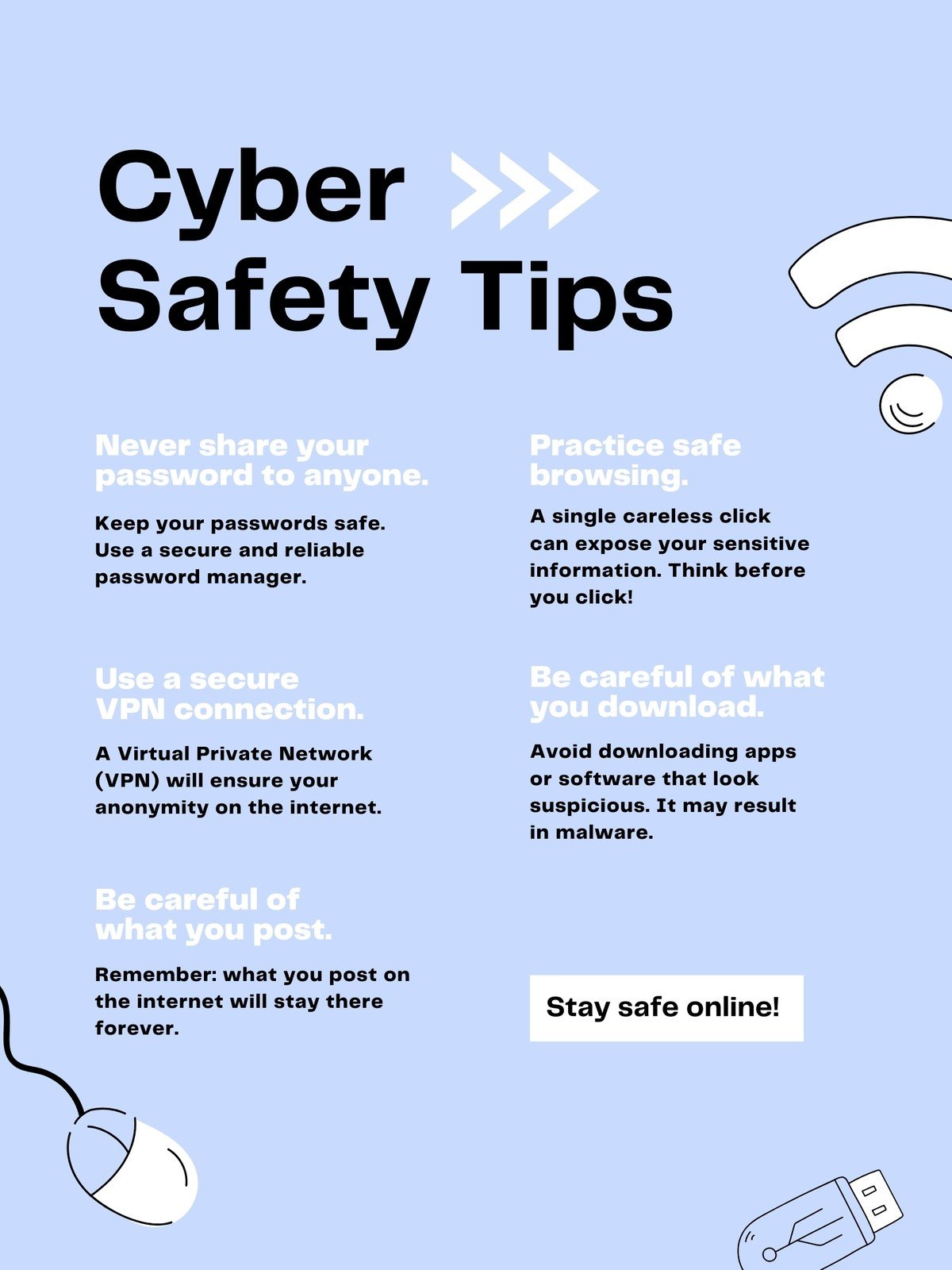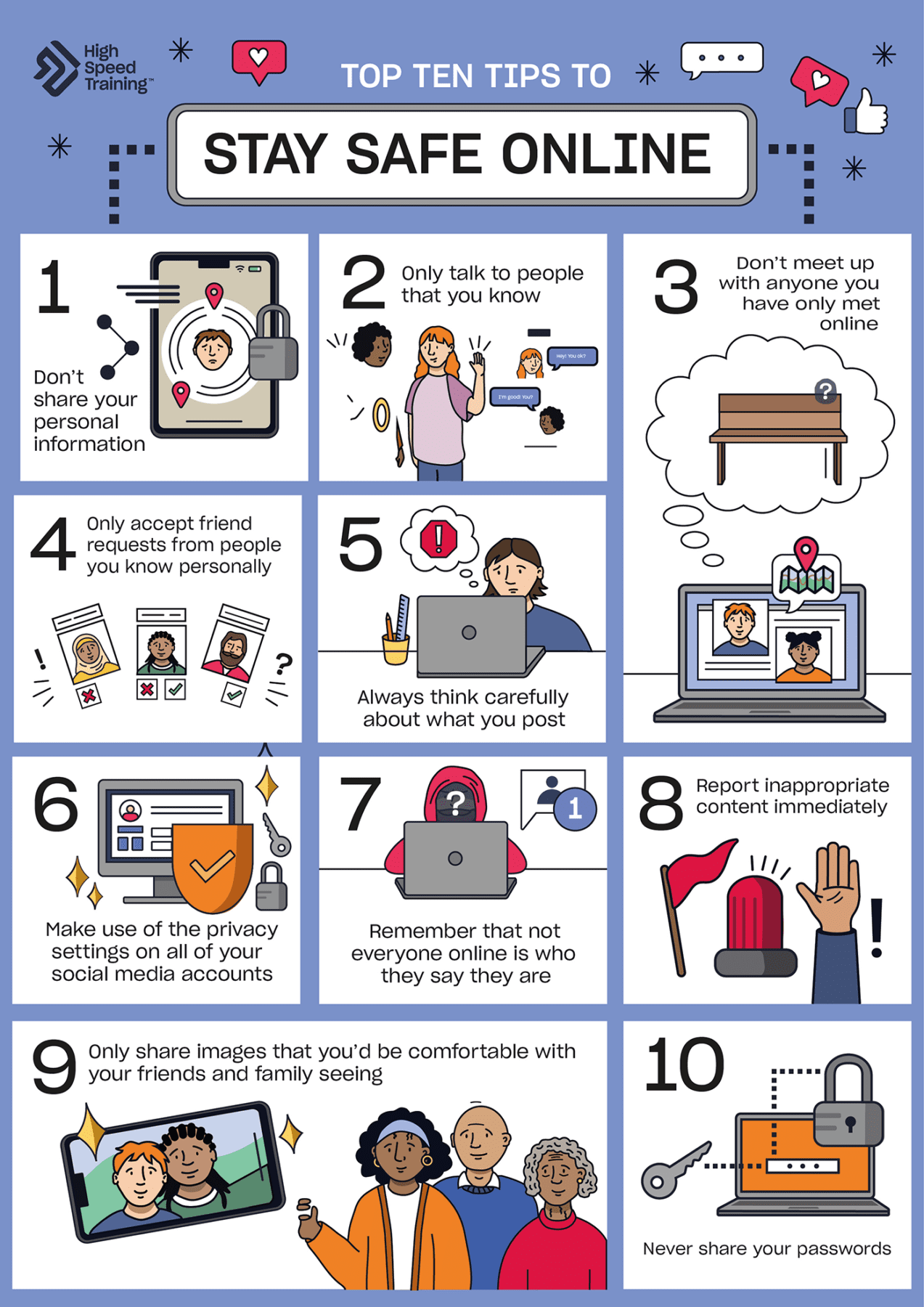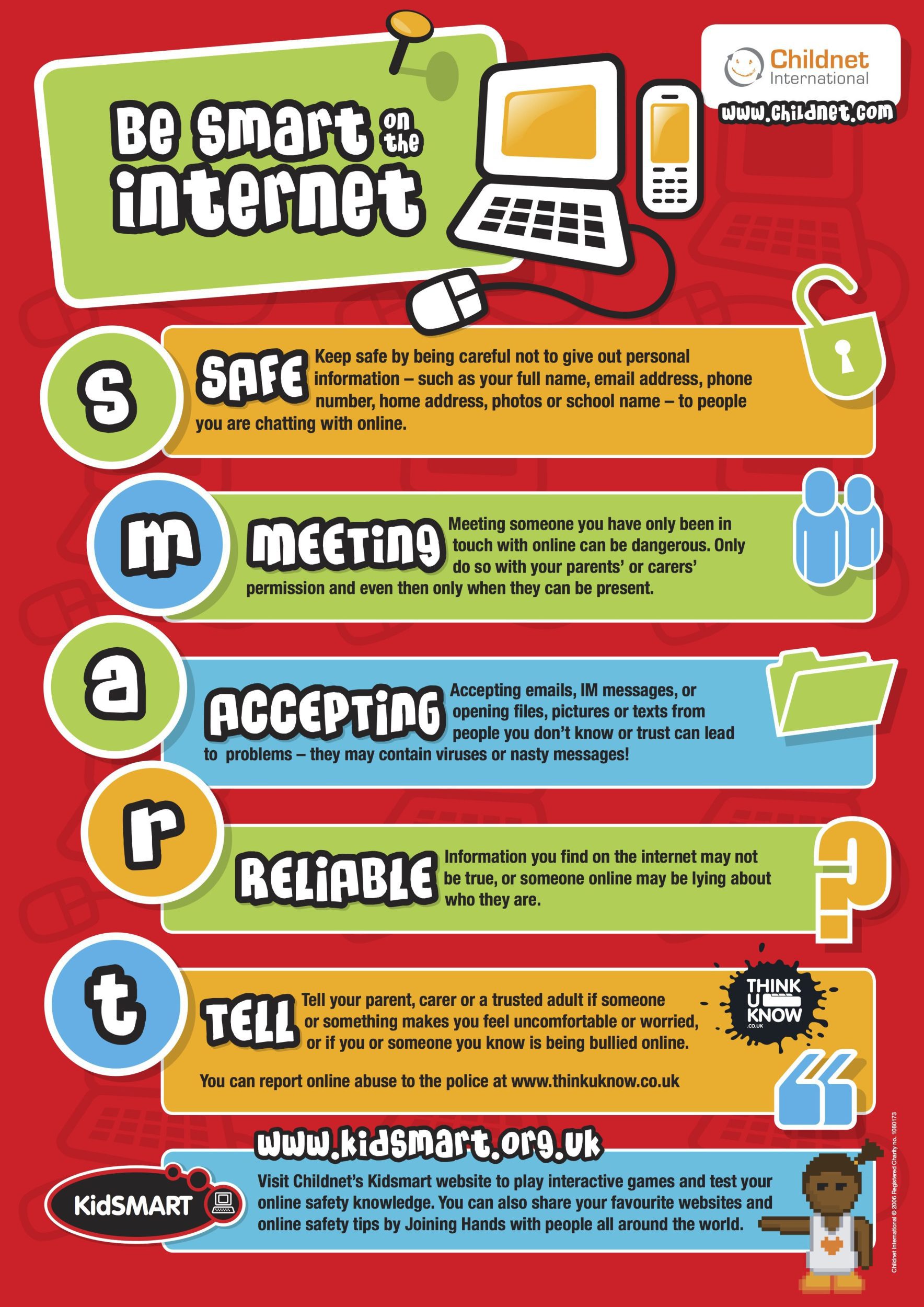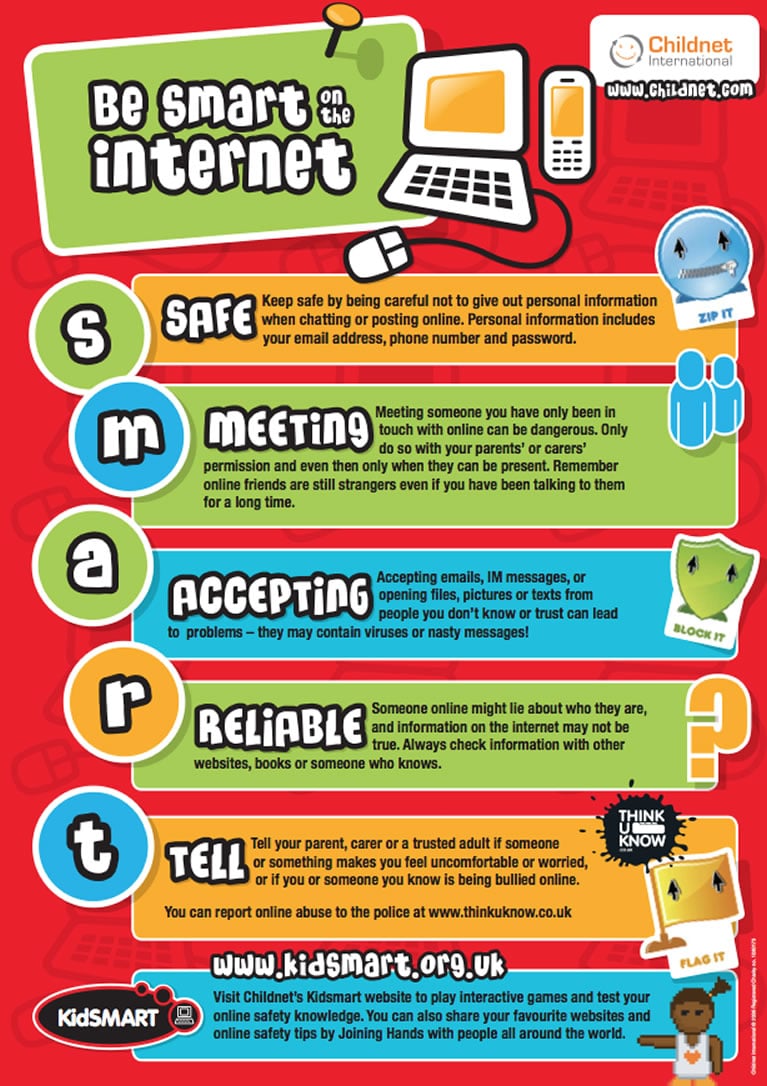Internet Safety Brochure For Students
Internet Safety Brochure For Students - The internet is a place where we can find a lot of useful information, connect with our friends, find cool apps and play games, but it is important to know how to navigate online safely. Be a good cyber citizen! Our resources for educators offer multiple ways to engage students, parents and communities in important lessons in digital citizenship and online safety. These tips help ensure a safer and more positive online. A reproducible brochure for parents on keeping kids safe online kids: This fact sheet includes information on the most common online threats students face and describes how school and. This fact sheet includes information on the most common online threats students face, including cyberbullying, and. And improper use of a computer can cause physical problems as well. The fbi's safe online surfing (sos) internet challenge—a free, educational program that teaches cyber safety and digital citizenship to children—was launched in october 2012. Empower your students to be safer. Download or print and share with other parents or colleagues to. To increase student knowledge of internet safety to aid the student in identifying dangers on the internet to build. For 4th and 5th graders, we offer the w.i.s.e. This fact sheet includes information on the most common online threats students face, including cyberbullying, and. Here you’ll find information about the ever‐changing online interests of young people, the potential risks they. Program—why internet safety is essential—a dynamic presentation that teaches young students the fundamentals of staying safe online. Learn how to guard against hacks, sim swaps, and other cyber threats. The internet is a place where we can find a lot of useful information, connect with our friends, find cool apps and play games, but it is important to know how to navigate online safely. Empower your students to be safer. Protecting their children on the internet and reducing their risk of victimization. These activities will encourage your students to think critically about online safety, including how much information to reveal and to whom. For parents, the guide emphasizes the need for open communication, monitoring online use, and staying informed about internet safety. This fact sheet includes information on the most common online threats students face, including cyberbullying, and. These tips help ensure. Be a good cyber citizen! These activities will encourage your students to think critically about online safety, including how much information to reveal and to whom. And improper use of a computer can cause physical problems as well. The fbi's safe online surfing (sos) internet challenge—a free, educational program that teaches cyber safety and digital citizenship to children—was launched in. Secure your digital life with our ultimate resource on internet safety. Our resources for educators offer multiple ways to engage students, parents and communities in important lessons in digital citizenship and online safety. A reproducible brochure for parents on keeping kids safe online kids: Empower your students to be safer. Download or print and share with other parents or colleagues. Empower your students to be safer. Learn how to guard against hacks, sim swaps, and other cyber threats. Be a good cyber citizen! School communities can empower students to make smarter online choices by creating a dynamic and engaging internet safety curriculum and by educating youth on digital literacy skills as part. Program—why internet safety is essential—a dynamic presentation that. Here you’ll find information about the ever‐changing online interests of young people, the potential risks they. Empower your students to be safer. Free mobile app24/7 tech supportmoney back guarantee Whether you are teaching a class or hosting a health fair, the handouts, activities, and lesson plans available from these organizations will help you teach children and their. For parents, the. Whether you are teaching a class or hosting a health fair, the handouts, activities, and lesson plans available from these organizations will help you teach children and their. These tips help ensure a safer and more positive online. Learn how to guard against hacks, sim swaps, and other cyber threats. The following questions are written in language. For parents, the. Program—why internet safety is essential—a dynamic presentation that teaches young students the fundamentals of staying safe online. Free mobile app24/7 tech supportmoney back guarantee Our resources for educators offer multiple ways to engage students, parents and communities in important lessons in digital citizenship and online safety. Whether you are teaching a class or hosting a health fair, the handouts, activities,. This fact sheet includes information on the most common online threats students face and describes how school and. These activities will encourage your students to think critically about online safety, including how much information to reveal and to whom. For 4th and 5th graders, we offer the w.i.s.e. Students need to understand that impulsive behavior online can jeopardize their identities,. Our resources for educators offer multiple ways to engage students, parents and communities in important lessons in digital citizenship and online safety. For 4th and 5th graders, we offer the w.i.s.e. And improper use of a computer can cause physical problems as well. Internet to identify and avoid situations that could threaten their safety. Download or print and share with. This fact sheet includes information on the most common online threats students face, including cyberbullying, and. For parents, the guide emphasizes the need for open communication, monitoring online use, and staying informed about internet safety. Here you’ll find information about the ever‐changing online interests of young people, the potential risks they. Whether you are teaching a class or hosting a. Internet to identify and avoid situations that could threaten their safety. A list of tips for kids about how to stay safe online and have fun This fact sheet includes information on the most common online threats students face and describes how school and. Protecting their children on the internet and reducing their risk of victimization. Free mobile app24/7 tech supportmoney back guarantee To increase student knowledge of internet safety to aid the student in identifying dangers on the internet to build. This fact sheet includes information on the most common online threats students face, including cyberbullying, and. A reproducible brochure for parents on keeping kids safe online kids: Whether you are teaching a class or hosting a health fair, the handouts, activities, and lesson plans available from these organizations will help you teach children and their. These activities will encourage your students to think critically about online safety, including how much information to reveal and to whom. The internet is a place where we can find a lot of useful information, connect with our friends, find cool apps and play games, but it is important to know how to navigate online safely. School communities can empower students to make smarter online choices by creating a dynamic and engaging internet safety curriculum and by educating youth on digital literacy skills as part. Students need to understand that impulsive behavior online can jeopardize their identities, reputations, and safety. Here you’ll find information about the ever‐changing online interests of young people, the potential risks they. For 4th and 5th graders, we offer the w.i.s.e. Learn how to guard against hacks, sim swaps, and other cyber threats.Cyber Safety Brochure R4NDOMTH1INGS
Safety Poster
Pin on esafety & digital citizenship
Top Tips for Safety Posters Loggerhead Publishing
Miss Lee's 4th Grade Blog Safety Posters Onderwijs, Veiligheid
Teaching Digital Citizenship 10 Safety Tips for Students
The Cedars Primary School Online Safety page
Online Safety Gaddesby Primary School
SMART Willow Lane Primary School
ESafety Dashwood Academy
For Parents, The Guide Emphasizes The Need For Open Communication, Monitoring Online Use, And Staying Informed About Internet Safety.
These Tips Help Ensure A Safer And More Positive Online.
Empower Your Students To Be Safer.
And Improper Use Of A Computer Can Cause Physical Problems As Well.
Related Post:









